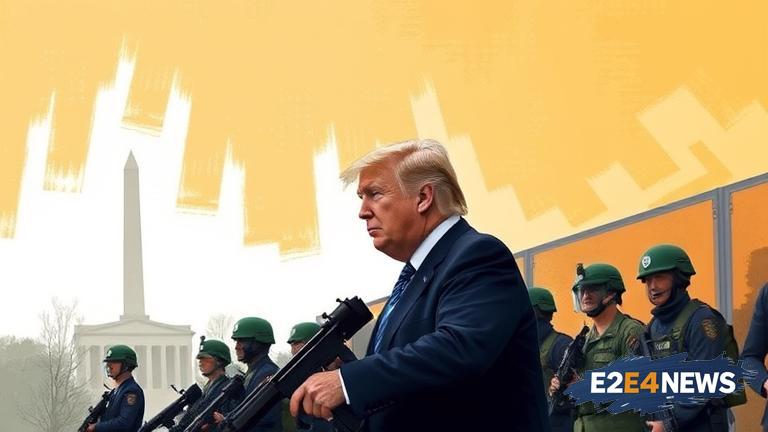The recent decision by the Trump administration to deploy armed National Guard troops in schools in Washington D.C. has sparked a wave of fear and fury among parents, students, and educators. The move, which was announced earlier this week, has been met with widespread criticism and outrage, with many calling for the immediate removal of the troops. According to reports, the National Guard troops were deployed to several schools in the district, including high schools and middle schools, in an effort to provide additional security and support. However, many have questioned the need for such a drastic measure, citing concerns about the potential risks and consequences of having armed troops in schools. Parents and students have expressed fears about the safety and well-being of children, with many worrying about the potential for accidents or violent incidents. Educators have also spoken out against the move, arguing that it will create a hostile and intimidating environment that will undermine the learning process. The deployment of troops has also raised concerns about the militarization of schools and the potential for the normalization of violence. Many have pointed out that the move is a clear example of the Trump administration’s prioritization of military might over the needs and well-being of children. The decision has also been criticized for its potential impact on marginalized communities, who may already feel vulnerable and targeted by law enforcement. The American Civil Liberties Union (ACLU) has condemned the move, arguing that it is a clear violation of students’ rights and an attempt to intimidate and silence them. The National Education Association (NEA) has also spoken out against the deployment, citing concerns about the potential risks and consequences. As the debate continues to rage, many are calling for a more nuanced and thoughtful approach to school safety, one that prioritizes the needs and well-being of children over the interests of the military and law enforcement. The issue has sparked a national conversation about the role of the military in schools and the need for a more comprehensive and inclusive approach to school safety. In response to the criticism, the Trump administration has defended the move, arguing that it is necessary to ensure the safety and security of students. However, many remain skeptical, arguing that the deployment of troops is a clear example of the administration’s failed policies and priorities. As the situation continues to unfold, it remains to be seen how the deployment of troops will impact the lives of students and educators in DC schools. One thing is clear, however: the move has sparked a wave of fear and fury that will not be easily silenced. The deployment of troops has also raised questions about the long-term consequences of such a move, including the potential impact on student mental health and well-being. Many have pointed out that the presence of armed troops in schools will create a culture of fear and anxiety, one that will undermine the learning process and create a hostile environment. The issue has also sparked a debate about the role of law enforcement in schools, with many arguing that the deployment of troops is a clear example of the over-policing of schools. As the debate continues to rage, it is clear that the deployment of troops in DC schools is a complex and multifaceted issue, one that requires a nuanced and thoughtful approach. The situation has sparked a national conversation about the need for a more comprehensive and inclusive approach to school safety, one that prioritizes the needs and well-being of children over the interests of the military and law enforcement. In the end, it remains to be seen how the situation will unfold, but one thing is clear: the deployment of troops in DC schools has sparked a wave of fear and fury that will not be easily silenced.
